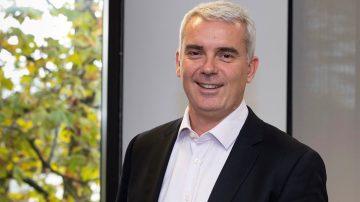Despite some progress on the gender pay gap in Jersey and low female unemployment in both islands, we are falling behind other economies like Luxembourg, Ireland, New Zealand and the UK when it comes to workforce parity.
This is according to PwC Channel Islands in its latest analysis looking at female economic empowerment. Entitled ‘Channel Islands Women in Work Index 2023’, the analysis claims that a GDP boost of 2% in Jersey (equating to £77m) and 6% in Guernsey (equating to £194m) could be achieved by matching the female labour force participation rate to that of 5th positioned Sweden.
Jersey’s gender pay gap at 11% is better than the OECD average of 14%, however Guernsey’s gender pay gap is at 16% which makes it one of the highest gender pay gaps in the Index. Closing the gender pay gap in Jersey would generate a boost to female earnings of 12% or £187m, and in Guernsey the female earnings boost would be as high as 18% or £159m.
Globally, PwC produces an annual Women in Work Index that gauges gender equality in OECD countries across a range of measures, including female employment rates and how their pay and participation in the economy compares with men.
PwC’s research team used the same criteria to assess how Jersey and Guernsey would perform if included in the Index rankings, based on comparable data. Those findings show that Jersey ranks the equivalent of 15th place in the PwC Women in Work Index of the 33 OECD countries and Guernsey is just behind in 16th place. Luxembourg tops the Index in first place, followed by New Zealand and Slovenia in third place. The UK is positioned in 14th place.
The analysis points to Guernsey and Jersey’s ‘non employed’ women. This is particularly concerning with near full employment and critical skills gaps in the local economy. Combined with rapidly ageing populations in both islands, low birth rates and a shrinking working age workforce, this is a worrying trend that must be addressed.
The latest Index acknowledges there are people who can afford not to work or for a variety of reasons have chosen not to work, however, it is more likely that significant barriers such as the lack of flexibility from employers and the high costs of childcare are disincentivising women in particular from working full time or working at all. When childcare costs and parental leave benefits are compared with the leading territories, Jersey is behind the curve in terms of support for women and parents, but Guernsey is significantly far behind.
During our research, we have also identified a talent pool of both men and women who are not economically active over the age of 50 in both islands. This presents a further opportunity to potentially boost the labour force. The analysis makes the following recommendations designed to speed up progress on workforce parity in the Channel Islands. They are:
Government actions:
- A strategy to target ‘non-employed’ talent pools – specifically focused on getting people back into work.
- A review of parental leave and childcare entitlements – are these competitive?
- Incentives to encourage women back into work – looking at ways to further support childcare costs is key.
- Upskilling and reskilling programmes – providing free, easy to access training on the most in-demand skills. Consider incentives for employers to provide
training too. - Consider legislative moves to encourage employers to be more open to flexible working patterns and to report on areas like gender pay gap.
Business actions:
- Gather data to understand your workforce demographic and equality gaps. Set targets around these and be willing to monitor and report for transparency.
- Broaden recruitment to appeal to a wider demographic. Consider offering ‘back to work’ training to help ‘returners’ from career breaks learn key skills.
- Embrace flexibility and be willing to consider a variety of flexible requests – different age groups will have different needs, but most will welcome flexibility.
- Consider parental leave and benefits to support both mothers and fathers.
- Review your culture – is it genuinely inclusive and an environment where everyone has an equal chance to thrive and succeed?
- Any focus on gender equality should be leadership-led and accountable.
PwC CI’s Chief Strategy Officer, Leyla Yildirim (pictured), commented: “In the Channel Islands we have a critical need for more talent and skills to drive growth and economic prosperity. We need to get away from the notion that equality, diversity and inclusion is a ‘nice to have’. There is a compelling business imperative to fill existing skill gaps and ensure there is a healthy talent pipeline for the future. It should be a top priority to attract and incentivise everyone who is able and wants to, back into the workforce. Where we have known barriers to that being achieved, we must remove them.”














